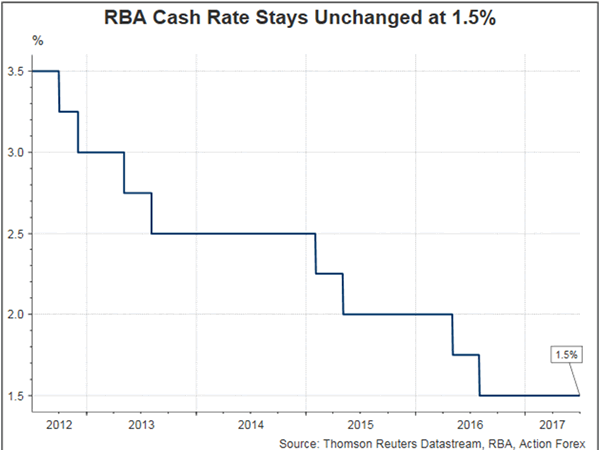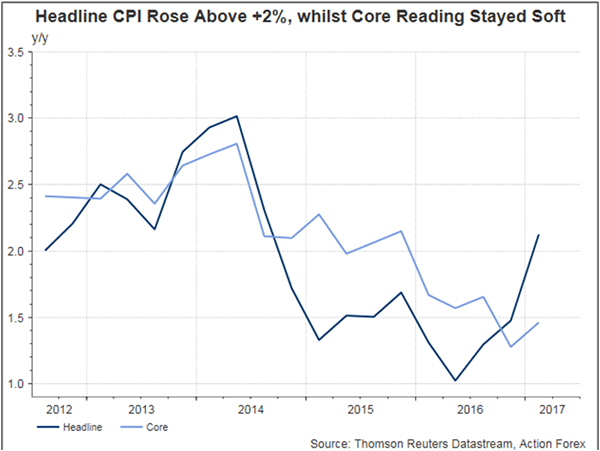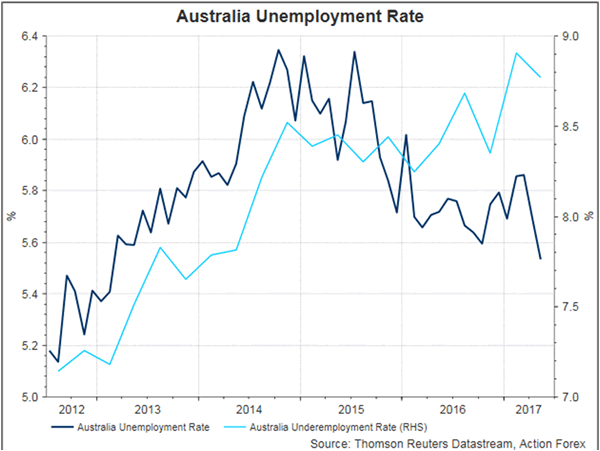RBA left the cash rate unchanged at 1.5% in June. While the decision had been widely anticipated, Aussie slumped after the announcement as the central bank failed to deliver a more hawkish tone as its US and European counterparts did. Policymakers affirmed that Australian economy would continue to grow gradually. Yet, they pointed to the strength in Australian dollar and subdue inflation as key reasons for standing on the sideline. Meanwhile, RBA remained concerned over the overheating housing market.
Policymakers judged that the country’s economy would ‘strengthen gradually, with the transition to lower levels of mining investment following the mining investment boom almost complete’ They acknowledged that ‘business conditions have improved and capacity utilization has increased” while ‘business investment has picked up in those parts of the country not directly affected by the decline in mining investment’ Yet, they added that ‘consumption growth remains subdued, reflecting slow growth in real wages and high levels of household debt’
The central bank noted that the economy would continue to be boosted by low interest rates, but warned that appreciation in the exchange rate is offsetting the effect. As suggested in the statement RBA reiterated the caution that ‘an appreciating exchange rate would complicate this adjustment’
On the housing market, policymakers noted that the conditions are varied across the country. As suggested in the statement, ‘in the eastern capital cities, a considerable additional supply of apartments is scheduled to come on stream over the next couple of years. Rent increases are the slowest for two decades. Growth in housing debt has outpaced the slow growth in household incomes’ Policymakers noted that ”supervisory measures should help address the risks associated with high and rising levels of household indebtedness’
The market was disappointed as RBA did not deliver a more hawkish tone, as what was done by central banks in the UK, Eurozone and even Canada. Last week, BOE’s Mark Carney suggested that rate hike debate was building and growth would be a key issue for discussion. ECB President Mario Draghi also delivered some hawkish comments last Tuesday while there have been heightening speculations that BOC would hike rate, for the first time in 7 years, in as soon as next week.



